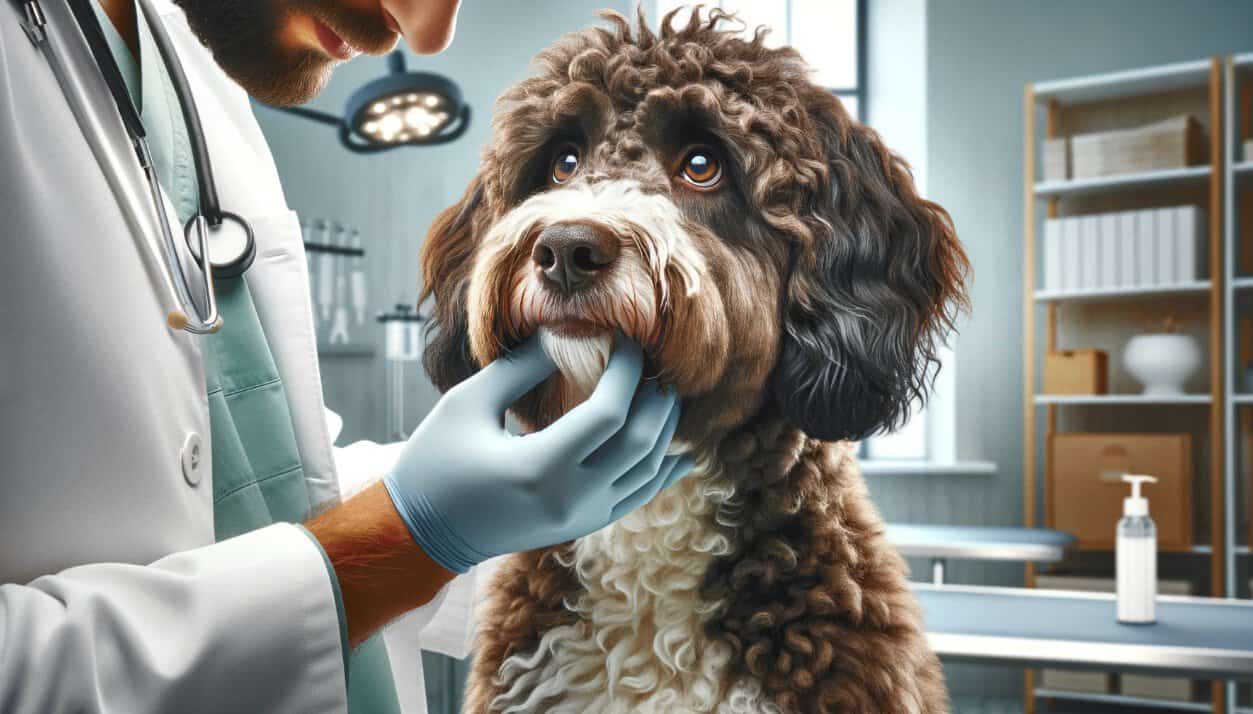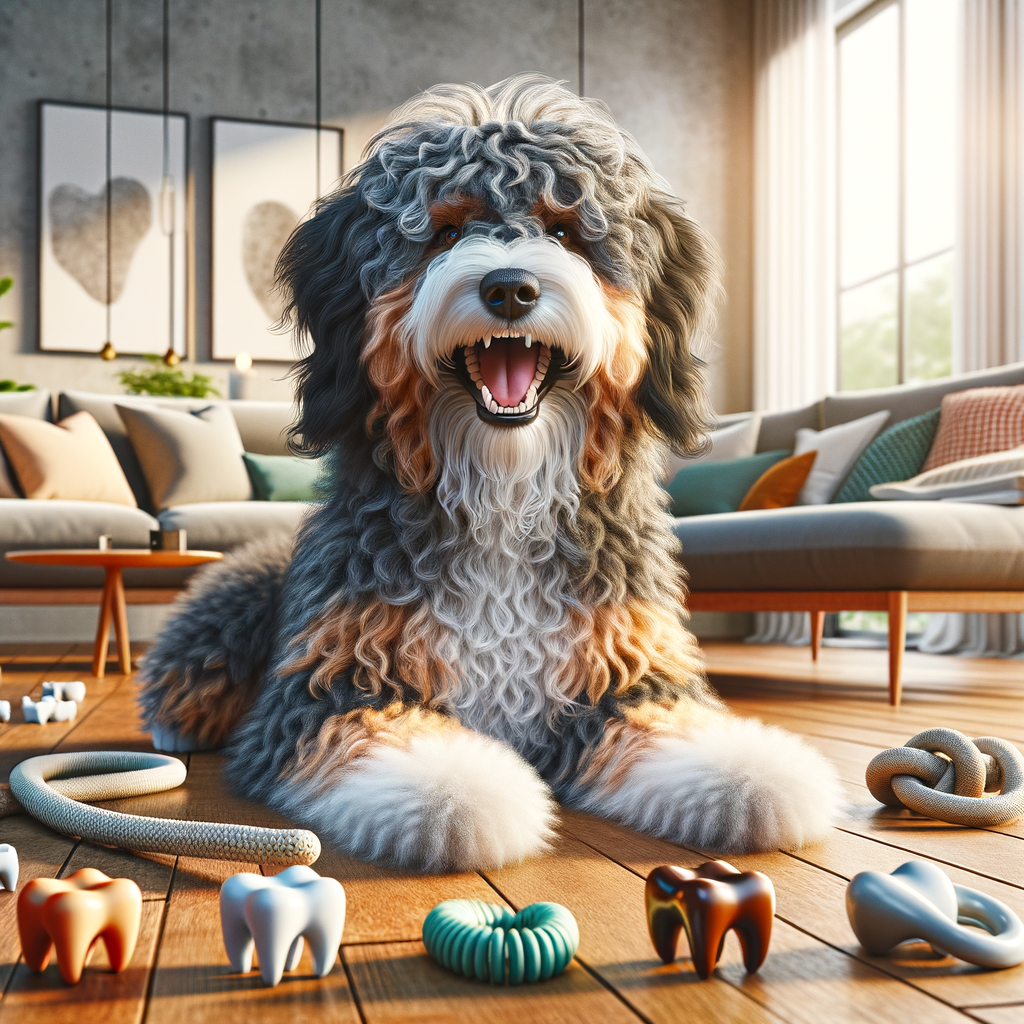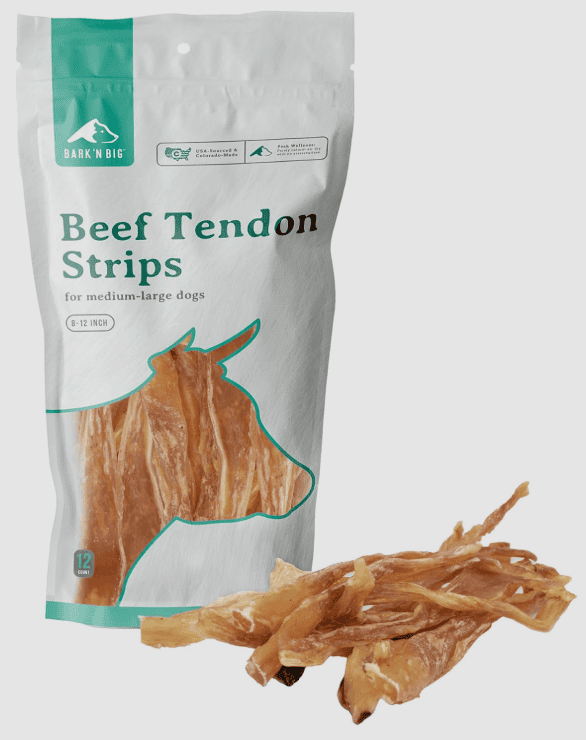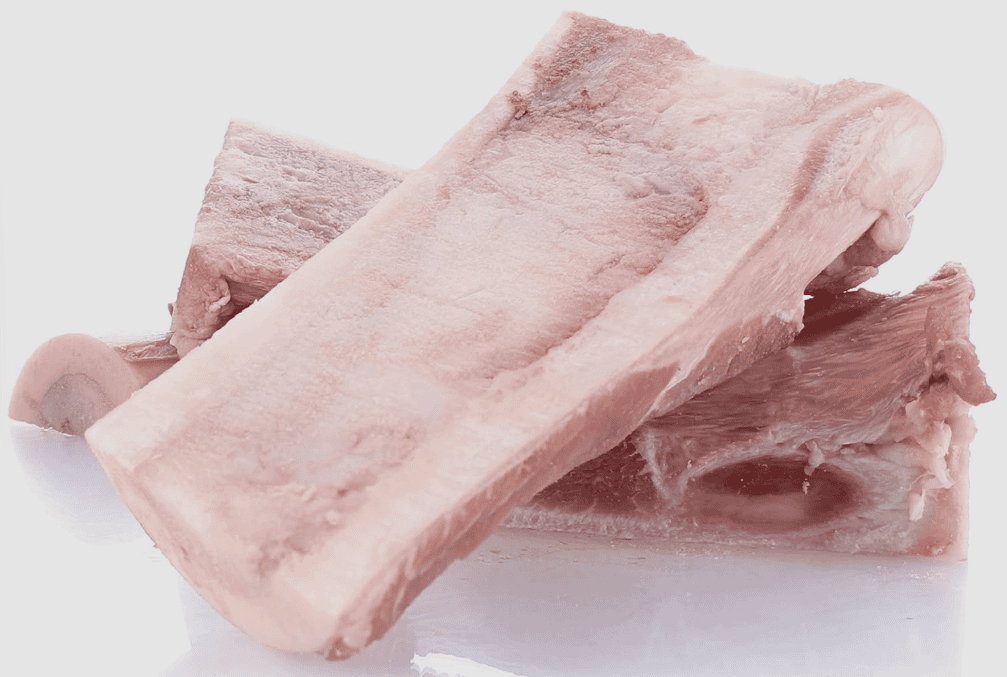Hi there, dog parents! I’m Dr. Candy, your friendly holistic veterinarian. Today, let’s talk about a topic that’s often overlooked but incredibly important – Barbet Dental Health. Did you know that dental health is just as crucial for our furry friends as it is for us? Just like humans, dogs can suffer from a variety of dental issues, which if left untreated, can lead to more serious health problems.

Barbets, with their adorable curly coats and friendly personalities, are no exception. They too can experience dental health issues that need our attention. So, whether you’re a proud Barbet parent or considering bringing one into your family, it’s essential to understand their specific dental health needs.
From recognizing the signs of dental disease to exploring conventional and holistic treatment options, we’ll cover everything you need to know to keep your Barbet’s pearly whites in tip-top shape. So, let’s dive in and explore the world of Barbet Dental Care together. Remember, a healthy mouth leads to a healthy pup!
Signs and Symptoms of Dental Disease in Barbets
Understanding the signs of dental disease in your Barbet can be the first step towards ensuring a long, healthy life for your furry friend. Just like humans, dogs also experience dental issues, and Barbets are no exception. The key to successful treatment is early detection, which is only possible if you are aware of the signs to look out for.
- Bad Breath: Contrary to popular belief, bad breath is not normal for dogs. It’s often the first sign of dental disease. If your Barbet’s breath is persistently foul, it’s time for a dental check-up.
- Difficulty Eating: If your Barbet is having trouble eating, or showing less interest in food, it could be due to oral discomfort. Watch out for signs like excessive drooling, or dropping food while eating.
- Changes in Behavior: Changes in behavior like increased aggression, or signs of depression can also be indicative of dental disease. Pain can cause changes in your Barbet’s mood and behavior.
- Discolored Teeth or Bad Gums: Regularly check your Barbet’s mouth for signs of dental disease. Discolored teeth, swollen, red, or bleeding gums are all signs of potential dental problems.
- Loose Teeth: Loose teeth are a serious symptom of dental disease in dogs. If you notice any loose teeth, it’s vital to seek veterinary help immediately.
Remember, your Barbet cannot tell you when something is wrong. It’s up to you to stay vigilant and catch these signs of dental disease early. Regular check-ups and professional dental cleanings are also essential for maintaining your Barbet’s dental health.
By being aware of these signs, you can ensure your Barbet gets the dental care they need. After all, their oral health is a significant part of their overall well-being. So, keep an eye on your furry friend’s mouth and help them stay happy and healthy!
Common Dental Health Issues In Barbet
As a veterinarian, I’ve seen a number of Barbet Dental Health issues. This breed, like many others, is susceptible to a variety of oral health problems. Understanding these can help you as a dog parent to take proactive steps in maintaining your Barbet’s dental health.
The most common dental issue in Barbets is periodontal disease, an infection of the tissues surrounding the teeth. This can lead to bad breath, swollen gums, and even tooth loss if left untreated. Regular professional dental cleanings can help prevent this condition.
Dental plaque and tartar are also common in Barbets. Plaque is a sticky substance that forms on the teeth and can harden into tartar if not removed. This can lead to gum disease and other oral health issues. Brushing your Barbet’s teeth regularly with a dog-safe toothpaste can help control plaque and tartar buildup.
- Tooth decay is another common issue. This can be caused by a diet high in sugars and carbohydrates, so it’s important to feed your Barbet a balanced diet.
- A less common but serious issue is tooth root abscesses. These are infections that occur at the root of the tooth, causing severe pain and swelling. Abscesses require immediate veterinary care.
Remember, Barbet Dental Health is a crucial part of your dog’s overall health. Regular dental check-ups, a good diet, and proper oral hygiene can go a long way in preventing these common issues.

Conventional Dental Health Treatments for Barbets
When it comes to Barbet Dental Health, there are a few conventional treatments that you might be familiar with. Let’s delve into those.
Anesthetic Dental Cleanings
The most common type of treatment is anesthetic dental cleanings. This is a professional dental cleaning where your Barbet is put under general anesthesia. The procedure includes scaling (removing dental plaque and tartar) and polishing, much like the type of cleaning we humans get at our dental check-ups.
While this method is effective in maintaining oral health care, it’s important to remember that anesthesia is not without risks. It can be especially challenging for Barbets with certain health conditions.
Potential Individual Health Obstacles
When considering anesthetic dental cleanings, be aware of potential health obstacles your Barbet might face. For instance, heart problems could complicate the use of anesthesia. Dogs with drug sensitivities may also react adversely to anesthetic agents used during dental health services.
Another concern could be seizures. If your Barbet has a history of seizures, anesthesia could potentially trigger a seizure episode. Furthermore, extreme age can also be a factor. Older dogs may have a difficult time recovering from anesthesia, making dental procedures more risky.
It’s crucial to discuss these potential obstacles with your vet before going ahead with anesthetic dental cleanings. They can advise you about the risks and benefits, and help you make an informed decision about your Barbet’s dental care.
Remember, the goal is to ensure your Barbet’s dental health in a safe, effective manner. Regular dental health check-ups can help catch potential issues early, and provide the best care for your furry friend. After all, a healthy mouth is an integral part of overall health for your Barbet.
Stay tuned for our next section where we will discuss Dr. Candy’s holistic approach to oral & dental health, which includes diet adjustments and the use of oral health specific probiotics. The journey towards optimal Barbet Dental Health continues!
Dr. Candy’s Holistic Approach To Oral & Dental Health
When it comes to Barbet Dental Health, I’m a big believer in a holistic approach. It’s not just about regular check-ups and cleanings, but also about maintaining a healthy lifestyle for your furry friend. Let’s dive into the two main components of my approach: diet and probiotics.
Diet – Low Carbs, Avoid Added Sugars, Enzymes In Fresh Food
Just like in humans, diet plays a crucial role in a Barbet’s dental health. I recommend a diet low in carbohydrates and free from added sugars. This is because carbs and sugars can lead to plaque buildup on your pup’s teeth, which can result in tooth decay and gum disease.
- Low-Carb Foods: Opt for high-quality proteins like chicken, beef, and fish. Vegetables are also a good choice as they are low in carbs and high in essential vitamins and minerals.
- Avoid Added Sugars: Many commercial dog foods and treats are loaded with added sugars. Always check the label and choose products without added sugars.
- Enzymes In Fresh Food: Fresh foods, particularly raw foods, contain natural enzymes that can help keep your Barbet’s teeth clean. Foods like raw carrots and apples can act as natural toothbrushes, scraping off plaque as your pup chews.
Oral Health Specific Probiotics
Probiotics aren’t just for gut health; they can also play a vital role in maintaining your Barbet’s oral health. I highly recommend Probiora for Dogs, an oral health targeted probiotic.
Probiotics are beneficial bacteria that can help balance the microbiome in your dog’s mouth. This can help prevent the overgrowth of harmful bacteria that cause bad breath, plaque, and gum disease. Probiora for Dogs is specifically designed to target oral health, making it an excellent addition to your Barbet’s dental care routine.
Remember, good dental health is a crucial part of your Barbet’s overall health and wellbeing. By focusing on a healthy diet and supplementing with oral health specific probiotics, you can help ensure your furry friend’s mouth stays as healthy as possible.
Stay tuned for the next section where I’ll be discussing the best dental chews and products for your Barbet. Until then, keep those tails wagging and those teeth sparkling!

Recommended Dental Chews & Products
As a loving Barbet parent, you might be looking for the best dental chews and products to maintain your furry friend’s oral health. Sadly, many of the commercially promoted dental chews fall short of their promised benefits. In fact, some can even be harmful to your Barbet’s dental health.
The Failure of Commercially Promoted Dental Chews
Many commercial dental chews are loaded with artificial flavors, colors, and preservatives that are not only unnecessary but can also lead to long-term health issues. Plus, they are often high in carbohydrates and sugars, contributing to dental decay rather than preventing it. Some even contain potential allergens like wheat, soy, and corn. Even worse, drinking water additives, often promoted alongside these chews, can harm the beneficial bacteria in your dog’s gut, disrupting their digestive health.
So, what’s the solution? The answer lies in natural, single-source proteins like tendons, raw marrow bones, and bully sticks. These are not only safe and healthy but also effective in maintaining your Barbet’s dental health.
Dr. Candy’s Recommended Dental Chews & Products
When it comes to dental chews, Dr. Candy recommends sticking to single-source natural proteins. These include:
Tendons
Tendons are a fantastic natural chew for your Barbet. They are tough and fibrous, which helps to scrape off plaque and tartar from your dog’s teeth. Plus, they are a good source of protein and collagen, promoting good joint health.

Raw Marrow Bones
Raw marrow bones are another excellent choice for maintaining your Barbet’s dental health. They are a natural source of calcium and phosphorus, which are essential for healthy teeth and bones. Furthermore, the act of gnawing on bones can help to clean your dog’s teeth and gums.

Bully Sticks
Bully sticks are made from 100% beef muscle, providing a natural and digestible chew for your Barbet. They can effectively remove plaque and tartar and are a good source of protein. However, always supervise your dog while they’re chewing on a bully stick to prevent any choking hazard.

Remember, while these chews can significantly improve your Barbet’s dental health, they are not a substitute for regular professional dental cleanings and check-ups. Regular visits to the vet for dental health services are crucial in catching any potential issues early and ensuring your Barbet’s teeth stay in tip-top shape.
So, let’s say goodbye to harmful, ineffective commercial chews and hello to these natural, effective alternatives for your Barbet’s dental health. Your furry friend’s sparkling smile will thank you!
Frequently Asked Questions
1. What causes bad breath in Barbets?
Bad breath in Barbets can be caused by various factors such as poor oral hygiene, dental diseases, gum infections, plaque buildup, or even underlying health issues. It is important to address the root cause to effectively treat bad breath.
2. How can I improve my Barbet’s dental hygiene?
To improve your Barbet’s dental hygiene, you can follow these steps:
- Brush their teeth regularly using a dog-specific toothbrush and toothpaste.
- Provide dental chews or toys that promote teeth cleaning.
- Schedule regular professional dental cleanings by a veterinarian.
- Ensure a balanced diet that supports good oral health.
3. Are there any home remedies for treating bad breath in Barbets?
While it is always recommended to consult a veterinarian for proper diagnosis and treatment, you can try these home remedies to help freshen your Barbet’s breath:
- Regularly brush their teeth using dog-specific toothpaste.
- Offer dental treats or toys designed to reduce plaque and freshen breath.
- Ensure they have access to fresh water at all times.
- Consider adding parsley or mint to their diet, as these herbs can help combat bad breath.
4. When should I seek veterinary help for my Barbet’s bad breath?
If your Barbet’s bad breath persists despite regular dental care, it is advisable to seek veterinary help. A veterinarian can examine your dog’s oral health, identify any underlying issues, and provide appropriate treatment.
5. Can dental diseases in Barbets affect their overall health?
Yes, dental diseases in Barbets can have a significant impact on their overall health. If left untreated, dental issues can lead to pain, discomfort, difficulty eating, and even systemic infections that can affect vital organs. Regular dental care is crucial for maintaining your Barbet’s overall well-being.
